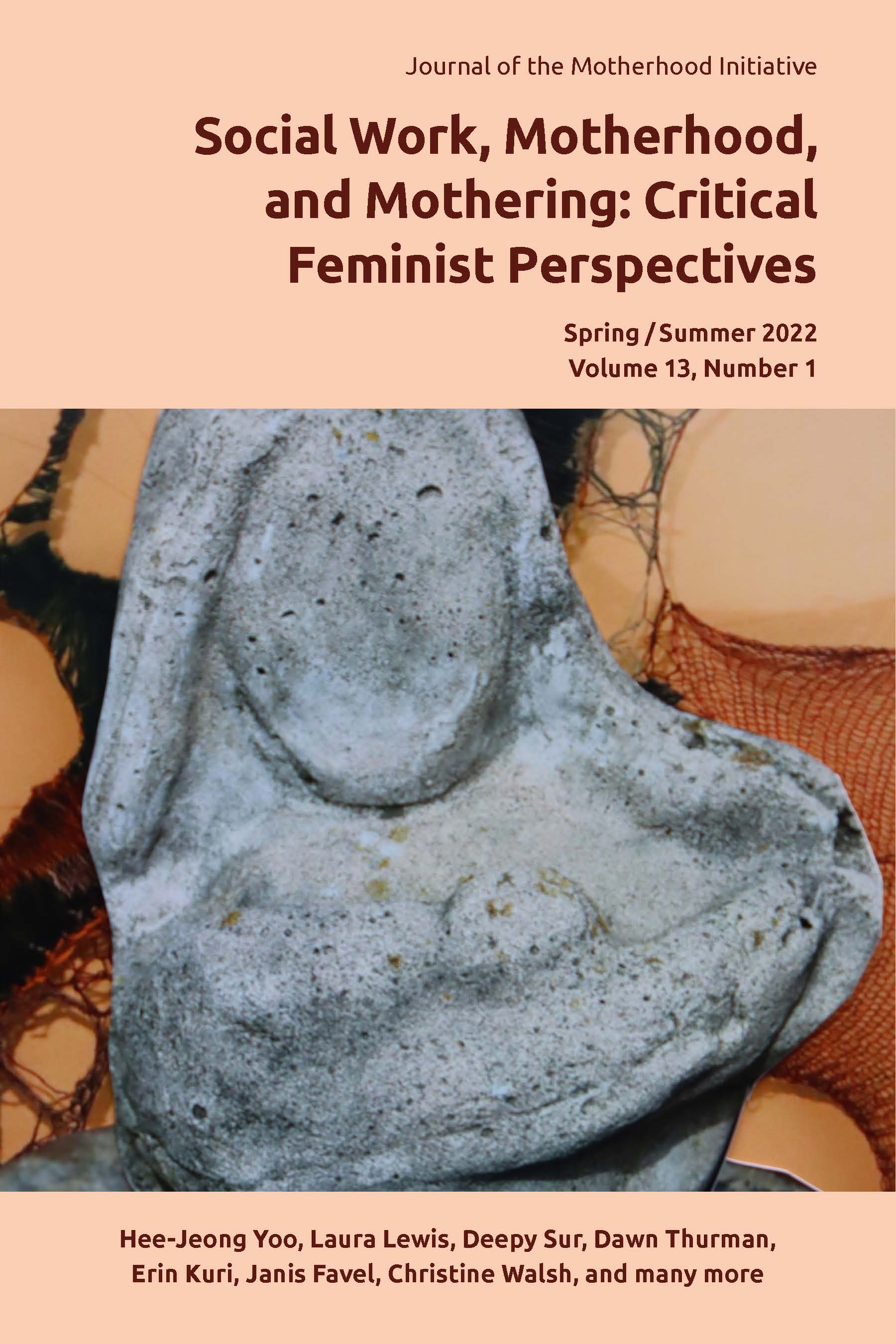Mothering in the Context of Child Welfare
Abstract
The predominant definition of motherhood in Canada, and Western society, reflects the notion of intensive mothering, whereby mothers are expected to manage their responsibilities as the primary caregiver of their children and household while maintaining employment outside of the home. This notion, which is based on a middle-class and Eurocentric construct, leaves little consideration for the experiences of mothers from diverse socioeconomic and ethno-racial backgrounds. Mothers involved in child welfare for allegations of abuse are challenged with identifying with this definition of motherhood, as they face stigmatization by their communities and shame for how they care of their children. Research affirms that mothers in child welfare are disproportionately younger and have a lower-economic status compared to the general population, in addition to having higher rates of homelessness, unemployment, and mental health concerns. Our research sought to answer the following question: How do the narratives of mothers with child welfare involvement challenge good mothering ideology? Our qualitative, exploratory study collaborates with three mothers in Calgary, Alberta, who over the course of a series on in-depth interviews shared stories of the mothering they experienced in childhood, the challenges in their own mothering, which resulted in having their children apprehended by the state, and finally their journey to regaining custody of their children. These women’s narratives highlighted their resiliency in reclaiming their identities as good mothers while challenging socially constructed beliefs about women and mothering. Our intention is that the women’s stories can inform child welfare policies and procedures to best support diverse families involved in the child welfare system.
Downloads
Published
How to Cite
Issue
Section
License
All intellectual property in relation to material included on this site belongs to the Motherhood Initiative for Research and Community Involvement (MIRCI). All material on this site is protected by Canadian and international copyright and other intellectual property laws. Users may not do anything which interferes with or breaches those laws or the intellectual property rights in the material. All materials on the Motherhood Initiative for Research and Community Involvement (MIRCI) are copyrighted and all rights are reserved. Any reproduction, modification, publication, transmission, transfer, sale, distribution, display or exploitation of the information, in any form or by any means, or its storage in a retrieval system, whether in whole or in part, without the express written permission of the Motherhood Initiative for Research and Community Involvement (MIRCI) is prohibited. Please contact us for permission to reproduce any of our materials. This site may include third party content which is subject to that third party's terms and conditions of use.


